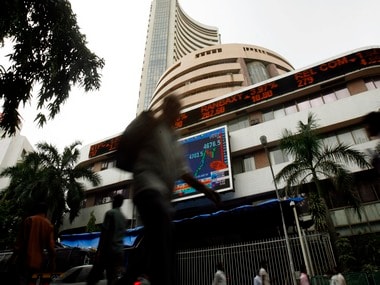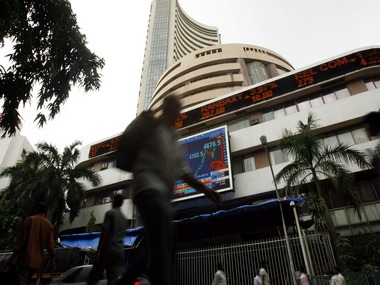The benchmark Sensex bounced back sharply in early Thursday trade, a major shift from the weak sentiment that prevailed over the last four trading sessions and led to a crash of nearly 800 points. However, with the last two sessions taking a severe pounding owing to China’s decision to devalue yuan, Indian markets also joined the global rout and witnessed a free fall. Even as China’s currency extended its depreciating trend for the third straight day today, local equity markets staged a smart recovery with the Sensex gaining nearly 300 points to touch a high of 27,791.10. [caption id=“attachment_2390930” align=“alignleft” width=“380”]  Reuters[/caption] At 10.50 am, 30-share benchmark S&P BSE Sensex was at 27,672.55, up 160.29 points, or 0.6 percent over previous close. Recovery was mostly led by gains in banking, power, capital goods and pharma shares. Similarly, the broader 50-share CNX Nifty was at 8,394.70, up 45.25 points, or 0.5 percent. Domestic equity market experts reckon that China’s persisting currency devaluation will have little-to-no major impact on local markets going ahead. Here are three key reasons why India may not be that vulnerable to Chin’s currency devaluation move: 1) Yuan’s fall is not so steep: G Chokkalingam, founder & managing director, Equinomics Research & Advisory, says China’s currency fell just around 0.7 percent in the last three years as against 17 percent depreciation in the rupee during the time. Yet, India’s total exports to China never improved significantly. Hence the 4 percent fall in China’s yuan in the last two days will not change the course of business dynamics between the two nations majorly. 2) All currencies join the game: At a time when China’s currency was allowed to devalue by its government, other Asian currencies also fell in tandem nearly offsetting the impact, said Chokkalingam. Despite the countries engaging in currency devaluation to boost their exports, global economy still remains fragile with subdued demand. 3) India seen getting aggressive: The yuan depreciation will indeed impact select sectors such as metals, tyre etc. This is because the a devalued yuan is an incentive for Chinese companies to aggressively increase exports and dump products in India. However, experts expect the Indian government to take aggressive steps to safeguard the industry. For instance, the government on Wednesday raised the import duty on some of the steel products by 2.5 percent. This second such increase in as many months came as a reaction to the yuan devaluation. The government can also increase anti-dumping duty on products that Chinese companies seek to dump here.
Recovery was mostly led by gains in banking, power, capital goods and pharma shares
Advertisement
End of Article


)

)
)
)
)
)
)
)
)



